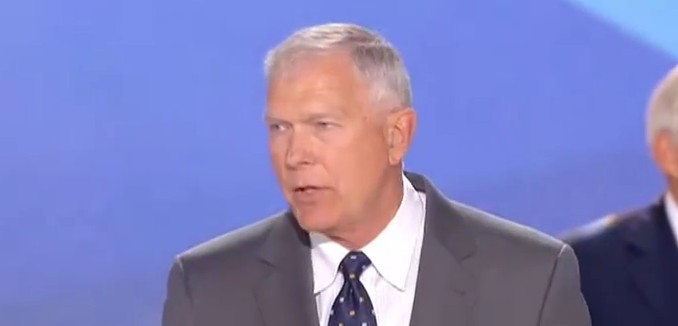Despite its stated goal of preventing Iran from becoming a nuclear threat, the deal will allow it to become a “threshold nuclear state” by the time it expires, Gen. (ret.) James Conway, the former commandant of the of Marine Corps, and Gen. (ret.) Charles Wald, former deputy commander of United States European Command, wrote in a commentary Friday at CNN.
Other elements of the deal will have “significant negative implications for the national security of the United States and our regional allies.” The deal not only undercuts America’s ability to respond to an Iranian nuclear threat, but also impairs America’s ability to respond to Iranian threats across the Middle East.
Iran’s adversarial intentions and activities are well known. As President Barack Obama said last month: “We have no illusions about the Iranian government or the significance of the Revolutionary Guard and the Quds Force. Iran supports terrorist organizations like Hezbollah. It supports proxy groups that threaten our interests and the interests of our allies — including proxy groups who killed our troops in Iraq. They try to destabilize our Gulf partners.”
However, the JCPOA will actually compound these threats. The deal will provide Tehran access to resources, technology, and international arms markets required to bolster its offensive military capabilities and support for proxy groups like Hezbollah. And even if only a fraction of the roughly $100 billion in overseas assets to be unfrozen as part of the agreement — more than the government’s entire budget for the current fiscal year — is devoted to military spending, Iran will be able to begin revitalizing its defense industrial base. Plus, it is also set to acquire advanced S-300 air defenses from Russia at the end of this year.
Over the medium term, the removal of economic sanctions and the U.N. arms embargo will allow the regime to acquire other advanced technologies and weapons from abroad. And, once sanctions against its ballistic missile program sunset, Iran could more easily develop weapons capable of reaching targets within the Middle East and beyond — including Europe and the United States.
Conway and Wald argued that military spending cuts will constrain America’s ability to respond to Iran’s conventional and unconventional threats, and urge the U.S. to implement “a strategy to begin mitigating the deal’s downsides now.”
Conway and Wald are as co-chairs of the Iran Strategy Council, a group of retired military leaders commissioned by the Jewish Institute for National Security Affairs to provide an “objective analysis of the deal’s potentially grave strategic implications.” Last week, the council released an extensive assessment of the risks of the deal, stating that it actually “increases both the probability and danger of hostilities with Iran.”
[Photo: iranncr / YouTube ]




